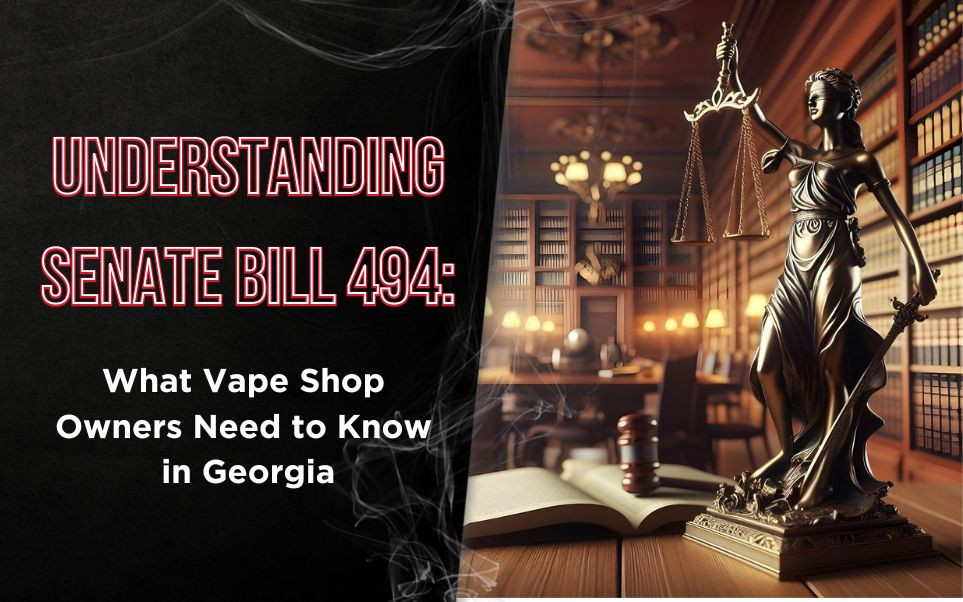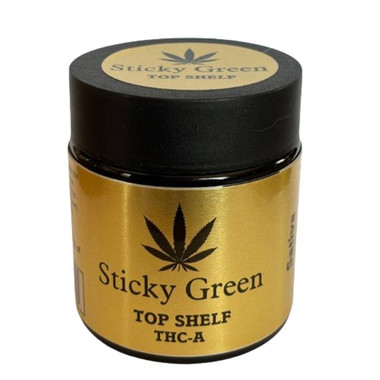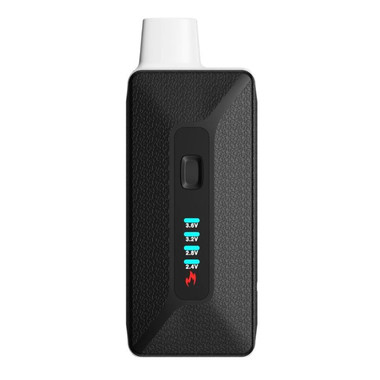Understanding Senate Bill 494: What Vape Shop Owners Need to Know in Georgia
Estimated 5 min read
With the recent passage of Senate Bill 494, significant changes are being implemented in Georgia regarding the sale and regulation of hemp-derived products, including vapes. This bill is a game-changer for both the vape industry and consumers, as it introduces new rules, licenses, and regulations that vape shop owners need to be aware of. This article will break down the key aspects of Senate Bill 494, explain the implications for vape shop ownership, and to provide guidance on the necessary permits and licenses.
What Changed with Senate Bill 494?
The most significant shift introduced by Senate Bill 494 is that the Georgia Department of Agriculture now oversees the regulation of growing, processing, testing, manufacturing, wholesale, and retail sales of consumable hemp products. This means that vape shops selling hemp-derived products, including vapes, must adhere to new guidelines on packaging, labeling, testing, and advertising.
In addition to these regulations, the criminal code in Georgia has been updated to prohibit the sale of consumable hemp products to individuals under 21 years of age. Retailers must also clearly post signs indicating this restriction. For vape shop owners, this means stricter oversight on who can purchase these products and an added responsibility to ensure their stores comply with the new age restrictions.
Licenses and Permits: What Do Vape Shop Owners Need?
With the introduction of Senate Bill 494, vape shop owners must secure the appropriate licenses and permits to operate in Georgia legally. Here’s a breakdown of the key licenses that may apply:
- Retail Consumable Hemp Establishment License: Required for any business selling consumable hemp products (including vapes) at a retail location in Georgia. If you plan to sell these products online to Georgia consumers, you will also need this license.
- Hemp Grower License: This license is mandatory for those looking to grow hemp for use in products sold at their vape shop.
- Hemp Processor Permit: If your business will be processing raw hemp into consumable products such as vape liquids, you’ll need this permit.
- Wholesale Consumable Hemp License: If you plan to supply pre-packaged consumable hemp products to other retail establishments, both inside and outside Georgia, this license is required.
- Hemp Manufacturer License: This license is necessary for businesses manufacturing consumable hemp products, including those creating vape liquids and cartridges. The bill offers an exemption on the licensing fee for those who already hold a Hemp Processor Permit.
- Hemp Laboratory Registration: Any lab testing hemp-derived products must be registered with the Department of Agriculture, ensuring compliance with Georgia’s testing standards. This is important for businesses wanting to verify the quality and legality of the products they sell.
What Products Are Affected by Senate Bill 494?
Vape products that are hemp-derived and consumable fall under the new regulations. According to the bill, consumable hemp products are defined as those intended to be ingested, absorbed, or inhaled by humans or animals. This includes gummies, vapes, oil-based tinctures, and beverages, all of which are now subject to stricter testing, packaging, and sale regulations.
While some products like gummies, tinctures, and vapes are permitted, the bill also outlines certain hemp products that are prohibited for sale in Georgia. Vape shop owners need to stay updated on these regulations to avoid selling restricted products.
Key Implications for Vape Shop Owners and the General Public
With the new licensing and regulatory framework, vape shop owners should prepare for stricter oversight and more administrative steps to ensure compliance with state laws. These changes mean that, beyond simply acquiring a retail space, vape shop owners need to:
- Secure the proper Retail Consumable Hemp Establishment License.
- Ensure that all products sold meet the testing and labeling requirements set forth by the Department of Agriculture.
- Post clear signage indicating the age restrictions for purchasing consumable hemp products.
For consumers, the main impact is the assurance that products on the market are better regulated and tested for safety and quality. The introduction of age restrictions and clear labeling requirements will help ensure that consumers are more informed about the products they are purchasing.
The Future of Vaping in Georgia Under Senate Bill 494
The changes brought by Senate Bill 494 signal a promising future for the vape industry in Georgia. As the government places greater emphasis on regulation, safety, and consumer protection, vape shop owners can expect more transparent guidelines to follow, leading to a more stable business environment. These regulations help build trust with the public, as consumers are assured that products are tested and compliant with state laws.
While the new regulations may initially present a hurdle for businesses, they also open the door to a more professional and sustainable vaping industry. With the right licenses and adherence to the guidelines, vape shop owners can continue to thrive, offering quality products to an increasingly health-conscious market.
Conclusion
The passage of Senate Bill 494 introduces substantial changes to the way vape shops operate in Georgia, particularly for those selling hemp-derived products. By requiring new licenses, enforcing strict age restrictions, and regulating product testing and labeling, the state ensures that consumable hemp products, including vapes, are sold safely and responsibly. For vape shop owners, now is the time to secure the proper licenses, understand the new rules, and position themselves for success in this evolving landscape.
With a clear regulatory framework in place, the future looks bright for the vape industry in Georgia. As more people turn to nicotine-free and hemp-derived products, shop owners have the opportunity to lead the way in providing safe, high-quality vapes while fostering trust among consumers. By adapting to these new regulations, vape businesses can not only survive but thrive in this promising new era.







